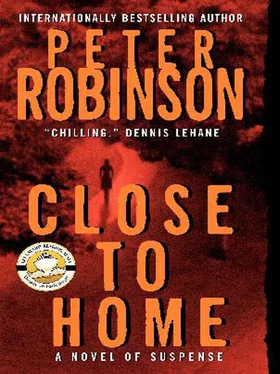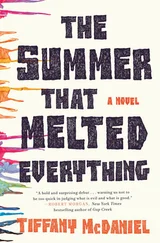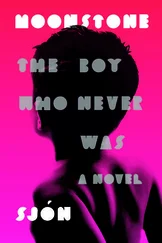His wife, Robin Fetherling, had once been a celebrated model, well enough known in her field as Martin Armitage was in his, and her exploits, including drugs, wild parties and stormy public affairs with a variety of rock stars, had provided plenty of fodder twenty years ago or more, when Annie was a teenager. Robin Fetherling and Neil Byrd had been a hot item, the beautiful young couple of the moment, when Annie was at the University of Exeter. She had even listened to Neil Byrd’s records in her student flat, but she hadn’t heard his name, or his music, in years – hardly surprising, as she had neither the time nor the inclination to keep up with pop music these days. She remembered reading that Robin and Neil had had a baby out of wedlock about fifteen years ago. Luke . Then they split up, and Neil Byrd committed suicide while the child was still very young.
“Oh, shit, indeed,” said Gristhorpe. “I’d not like to think we give better service to the rich and famous than to the poor, Annie, but perhaps you could go and try to set the parents at ease. The kid’s probably gone gallivanting off with his mates, run away to London or something, but you know what people’s imaginations can get up to.”
“Where did he disappear from, sir?”
“We don’t know for certain. He’d been into town yesterday afternoon, and when he didn’t come home for tea they started to get worried. At first they thought he might have met up with some mates, but when it got dark and he still wasn’t home they started to get worried. By this morning, they were frantic, of course. Turns out the lad carried a mobile with him, so they’re sure he would have rung if anything came up.”
Annie frowned. “That does sound odd. Have they tried ringing him?”
“No signal. They say his phone’s switched off.”
Annie stood up and reached for her umbrella. “I’ll go over there and talk to them now.”
“And, Annie?”
“Yes, sir?”
“You hardly need me to tell you this, but try to keep as low a profile as possible. The last thing we want is the local press on the case.”
“Softly, softly, sir.”
Gristhorpe nodded. “Good.”
Annie walked toward the door.
“Nice boots,” said Gristhorpe from behind her.
Banks remembered the days surrounding Graham Marshall’s disappearance more clearly than he remembered most days that long ago, he realized as he closed his eyes and settled back in the airplane seat, though memory, he found, tended to take more of a cavalier view of the past than an accurate one; it conflated, condensed and transposed. It metamorphosed, as Alex had said last night.
Weeks, months, years were spread out in his mind’s eye, but not necessarily in chronological order. The emotions and incidents might be easy enough to relocate and remember, but sometimes, as in police work, you have to rely on external evidence to reconstruct the true sequence. Whether he had got caught shoplifting in Woolworth’s in 1963 or 1965, for example, he couldn’t remember, though he recollected with absolute clarity the sense of fear and helplessness in that cramped triangular room under the escalator, the cloying smell of Old Spice aftershave and the way the two dark-suited shop detectives laughed as they pushed him about and made him empty his pockets. But when he thought about it more, he remembered it was also the same day he had bought the brand-new With the Beatles LP, which was released in late November 1963.
And that was the way it often happened. Remember one small thing – a smell, a piece of music, the weather, a fragment of conversation – then scrutinize it, question it from every angle, and before you know it, there’s another piece of information you thought you’d forgotten. And another. It didn’t always work, but sometimes when he did this, Banks ended up creating a film of his own past, a film which he was both watching and acting in at the same time. He could see what clothes he was wearing, knew what he was feeling, what people were saying, how warm or cold it was. Sometimes the sheer reality of the memory terrified him and he had to snap himself out of it in a cold sweat.
Just over a week after he had returned from a holiday in Blackpool with the Banks family, Graham Marshall had disappeared during his Sunday-morning paper round out of Donald Bradford’s newsagent’s shop across the main road, a round he had been walking for about six months, and one that Banks himself had walked a year or so earlier, when Mr. Thackeray owned the shop. At first, of course, nobody knew anything about what had happened, apart from Mr. and Mrs. Marshall and the police.
As Banks leaned back in his seat and closed his eyes, he tried to reconstruct that Sunday. It would have started in the normal way. On weekends, Banks usually stayed in bed until lunchtime, when his mother called him down for the roast. During lunch they would listen to the radio comedies on the Light Programme: The Navy Lark and Round the Horne, until The Billy Cotton Band Show drove Banks out of doors to meet up with his friends on the estate.
Sometimes, the five of them – Banks, Graham, Steve Hill, Paul Major and Dave Grenfell – would go walking in the local park, staking out an area of grass near the playing fields, and listen to Alan Freeman’s Pick of the Pops on Paul’s trannie, watching the girls walk by. Sometimes Steve would get bold and offer one of them a couple of Woodbines to toss him off, but mostly, they just watched and yearned from a distance.
Other Sundays they’d gather at Paul’s and play records, which was what they did on the day Graham disappeared, Banks remembered. Paul’s was best because he had a new Dansette which he would bring outside on the steps if the weather was good. They didn’t play the music too loudly, so nobody complained. If Paul’s mum and dad were out, they’d sneak a cigarette or two as well. That Sunday, everyone was there except Graham, and nobody knew why he was missing, unless his parents were keeping him in the house for some reason. They could be strict, Graham’s parents, especially his dad. Still, whatever the reason, he wasn’t there, and nobody thought too much of it.
There they would be, then, sitting on the steps, wearing their twelve-inch-bottom drainpipe trousers, tight-fitting shirts and winkle-pickers, hair about as long as they could grow it before their parents prescribed a trip to Mad Freddy’s, the local barber’s. No doubt they played other music, but the highlights of that day, Banks remembered, were Steve’s pristine copy of the latest Bob Dylan LP, Bringing It All Back Home, and Banks’s Help!
Along with his fascination with masturbation, Steve Hill had some rather way-out tastes in music. Other kids might like Sandie Shaw, Cliff Richard and Cilla Black, but for Steve it was The Animals, The Who and Bob Dylan. Banks and Graham were with him most of the way, though Banks also enjoyed some of the more traditional pop music, like Dusty Springfield and Gene Pitney, while Dave and Paul were more conservative, sticking with Roy Orbison and Elvis. Of course, everybody hated Val Doonican, Jim Reeves and The Bachelors.
That day, songs like “Subterranean Homesick Blues” and “Maggie’s Farm” transported Banks to places he didn’t know existed, and the mysterious love songs “Love Minus Zero/No Limit” and “She Belongs to Me” lingered with him for days. Though Banks had to admit he didn’t understand a word Dylan was singing about, there was something magical about the songs, even vaguely frightening, like a beautiful dream in which someone starts speaking gibberish. But perhaps that was hindsight. This was only the beginning. He didn’t become a full-fledged Dylan fan until “Like a Rolling Stone” knocked him for a loop a month or two later, and he wouldn’t claim, even today, to know what Dylan was singing about half the time.
Читать дальше












